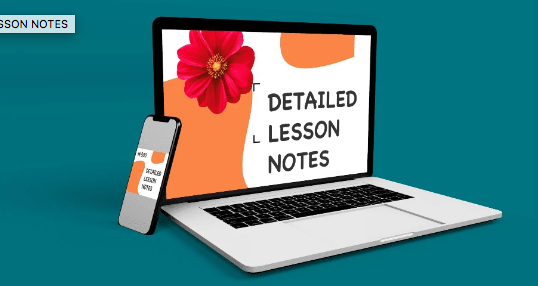Civic Education Lesson notes for primary 1 Third Term
ACCESS ALL LESSON NOTES
ACCESS ALL QUESTIONS AND ANSWERS
ACCESS ALL WORKSHEETS
ACCESS ALL JOBS ACCESS
ACCESS WAEC QUESTIONS AND ANSWERS
Primary 1 Civic Education Third Term Week one
Date
Class: primary one Subject: Civic Education
Topic: why study civic education Duration: 40 minutes
Previous knowledge : pupils have the understanding of civic education Behavioral objective: At the end of the lesson pupils should be able to:
1. List the importance of Civic education Instructional material: textbook, pictures, charts Reference Book
Content
Why study Civic education
Civic education is necessary for the following reasons:
1. It helps us to know and understand our responsibility as a good citizen of a country.
2. It helps us to participate in various groups and organization
3. It helps to understand how to vote and be voted for.
4. It helps us to understand the country’s rules and regulations.
5. It helps us to understand the school rules and regulations.
Presentation: Teacher presents the topic as follows:
( 1)Teacher revises the previous topic (2)Teacher introduces the new topic (3)Teacher explains why study Civic education
(4) Teacher writes note on why study Civic education Evaluation
Teacher gives class work:
List the rules and regulations in your school
Assignment: Teacher gives pupils assignment as follows: List two reasons why study civic education
Primary 1 Civic Education Third Term Week Two
Date
Class: primary one Subject: Civic Education Topic: Democratic Rights Duration: 40 minutes
Previous knowledge: pupils are familiar with Civic education Behavioral objective: \At the end of the lesson pupils should be able to
1. Define Democratic rights
2. List that Democratic rights
Instructional material: Text book, charts, pictures. Reference Book
Content Democratic Right
Democratic rights are the rights of the people of select their leaders for various post such as: Governor, president, Representatives be etc through electoral processes.
The Democratic rights include:
1. Rights to select the best candidate for governor, president be etc
2. Right to public meetings, opinions and ideas
3. Freedom to public campaign
4. Right to Education
5. Right to social amenities.
6. Freedom of movement, religion, life e.t.c
Presentation
Teacher presents the topic as follows:
( 1)Teacher revises the previous topic (2)Teacher introduces the new topic
(3) Teacher explain the topic, Democratic Rights
(4) Teacher writes notes for the pupils.
Evaluation: Teacher gives the pupils class work as follows: 1.leaders ae selected through———–
Assignments:
List 5 Democratic rights
Week Three Date
Class: primary one Subject: Civic Education
Topic: why study civic education Duration: 40 minutes
Previous knowledge: pupils have been taught rights
Behavioral objective: At the end of the lesson pupils should be able to:
1. Define Civic Rights
2. List Civic Rights
Instructional material: Textbook, chart, pictures. Reference Book
Content:
Civic Rights
Civic rights are the rights of members of the society or country to participate in the political activities of the country.
Civic Rights include the following:
1. Rights to vote
2. Rights to free trial
3. Rights to government services
4. Rights to public education
5. Rights to public facilities
Presentation: Teacher presents the topic as follows: (1)Teacher revises the previous topic
(2)Teacher introduces the new topic (3)Teacher explain the topic, Civic Rights
(4) Teacher writes notes for the pupils Evaluation: Teacher gives pupils class work:
1. What are Civic Rights? Assignment:
List examples of Civic Rights
WEEK FOUR DATE
Class: primary one Subject: Civic Education
Topic: Civic Responsibilities Duration: 40 minutes
Previous knowledge: pupils can explain Civic rights
Behavioral objective: At the end of the lesson pupils should be able to:
1. Define Civic Responsibilities
2. List examples of Civic Responsibilities Instructional material: Text book, charts, pictures
Reference Book Content:
Civic Responsibilities
Civic Responsibilities are the actions, duties or roles of members of the country towards their country or organization.
Civic Responsibilities include:
1. Obedience to the national pledge, national anthem when it is been received
2. Obedience to the country’s rules and regulations.
3. Protection of lives and properties of other members of the country.
4. Protection of country’s property such protecting public services in your communities
5. Obedience to school rules and regulations Presentations:
Teacher presents the topic as follows: (1)Teacher revises the previous topic (2)Teacher introduces the new topic
(3) Teacher explain the topic, Civic Responsibilities
(4) Teacher writes notes for the pupils. Evaluation: Teacher gives the pupils class work: What are Civic Responsibilities?
Assignment. Teacher gives pupils assignment: List your Responsibilities as members of this class
